

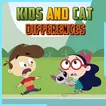


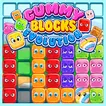




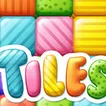



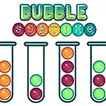
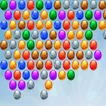




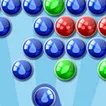






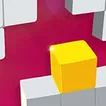


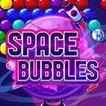
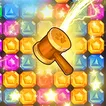







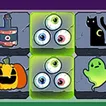
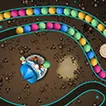












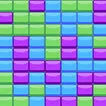









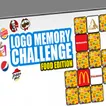





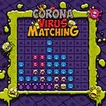









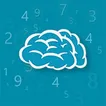
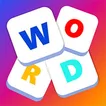


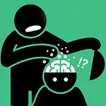






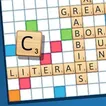








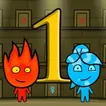















Matching Games: Engaging Your Brain with Fun Puzzles
Matching games are not just a source of entertainment; they are a brain workout, engaging players in a mental gymnastics routine that can be both challenging and rewarding. These puzzles come in various forms, from the classic memory card game, where players flip cards to find pairs, to more complex varieties that require matching patterns or sequences under time pressure. They are designed to test a range of cognitive skills including memory, strategic thinking, and the ability to make quick decisions.
The beauty of matching games lies in their simplicity and the immediate feedback loop they provide. When a match is made, the brain is rewarded with a sense of achievement, encouraging the player to continue and improve. This positive reinforcement is a key factor in the addictive quality of these games. They can be deceptively simple, starting off easy to lure players in, but gradually increasing in difficulty to keep the brain engaged and challenged.
The universal appeal of matching games is evident in their widespread popularity across different cultures and age groups. They are accessible to everyone, from young children learning shapes and colors to older adults looking to maintain their cognitive agility. The visual and mental concentration required to play these games can also serve as a meditative practice, helping players to focus and relieve stress.
In both their physical and digital incarnations, matching games have stood the test of time, evolving with technology while retaining their core principle: to provide a fun and stimulating environment for brain training. Whether as a casual pastime or a dedicated pursuit, engaging in these puzzles can lead to improved cognitive functions and a healthier mind.
Free Matching Games Online: Variety at Your Fingertips
The digital age has ushered in an era where free matching games are just a click away, offering an impressive variety of puzzles that cater to all preferences and skill levels. The internet is a treasure trove for enthusiasts of these games, providing instant access to a plethora of options that range from the simplest form of pair matching to more intricate challenges involving sequences and pattern recognition.
Online platforms have revolutionized the way we engage with matching games, allowing players to enjoy these brain teasers without the need for physical cards or boards. This convenience means that a quick mental workout is available anytime, whether during a break at work, on a commute, or in the comfort of one’s home. The accessibility of these games online also eliminates barriers to entry, ensuring that anyone with an internet connection can partake in the fun.
The diversity of free matching games online is truly remarkable. Players can find themselves sorting through vividly colored gems, connecting dots, aligning shapes, or even uncovering hidden treasures, all within the framework of matching mechanics. The variety ensures that there is always something new to try, keeping the experience fresh and exciting.
Moreover, the social aspect of online matching games adds another layer of enjoyment. Many platforms offer multiplayer modes or leaderboards, fostering a sense of community and friendly competition. This social interaction not only enhances the gaming experience but also encourages players to challenge themselves and improve their skills.
Free matching games online are a testament to the genre’s adaptability and enduring charm. They provide a vast array of puzzles that are not only entertaining but also readily available, making it easier than ever to engage your brain with fun, challenging puzzles.
Match Games: A Brain-Boosting Experience
Match games are more than mere entertainment; they’re a cerebral workout that can significantly enhance cognitive abilities. Engaging in these puzzles regularly can lead to improvements in memory, as the brain is trained to recall the location and attributes of various pieces. This mental exercise is beneficial for all ages, helping to keep the mind sharp and responsive.
The strategic element of match games also plays a crucial role in brain health. Players must plan moves ahead, anticipate outcomes, and adapt strategies on the fly, which enhances problem-solving skills and critical thinking. This type of mental engagement is akin to flexing a muscle, making the brain stronger and more adept at tackling complex tasks in everyday life.
Pattern recognition is another cognitive skill that match games develop. Identifying similarities and differences among pieces requires attention to detail and concentration. Over time, this can lead to quicker and more accurate recognition of patterns in the world around us, a skill that is invaluable in many real-world scenarios, from analyzing data to recognizing social cues.
Furthermore, the challenge of match games can stimulate neuroplasticity, the brain’s ability to form and reorganize synaptic connections, especially in response to learning or experience. This means that regularly playing these games can actually rewire the brain, potentially improving mental agility and the ability to learn new skills.
In essence, match games offer a brain-boosting experience that combines fun with functional benefits. By regularly engaging with these puzzles, players of all ages can enjoy a form of entertainment that not only passes the time but also contributes to their overall cognitive well-being.
Matching Games for Different Age Groups
Matching games have a unique ability to cross generational divides, offering tailored experiences that resonate with different age groups. For children, these games are often vibrant and straightforward, focusing on fundamental skills like color and shape recognition. They serve as playful tools for learning, helping young minds to develop critical thinking and memory retention in an enjoyable and interactive way.
As players grow older, the complexity of matching games can increase, introducing more sophisticated challenges that require advanced strategy and quicker reflexes. Teenagers and adults might encounter games that involve multitasking or time constraints, pushing them to sharpen their cognitive abilities and reaction times.
For the senior population, matching games can be a source of gentle mental stimulation, aiding in the maintenance of cognitive functions and potentially slowing the progression of age-related decline. These puzzles can be both a leisurely activity and a form of mental exercise, contributing to a sense of mental acuity and alertness.
Educators and therapists also recognize the value of matching games as a resource for cognitive development and rehabilitation. In educational settings, these games can support curriculum goals by enhancing memory and concentration skills. In therapeutic contexts, they can assist in the recovery of motor skills and cognitive functions following injury or illness.
In essence, matching games are a versatile and inclusive form of entertainment and education. They can be adapted to suit the developmental stage and cognitive abilities of any age group, making them a valuable and enjoyable pastime for everyone, from the very young to the elderly. Whether for learning, leisure, or cognitive maintenance, matching games continue to be a beloved and beneficial activity across the lifespan.